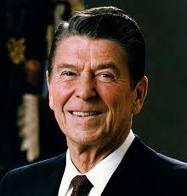The SudMed pipeline which carries Saudi and Persian Gulf oil to the Egyptian Mediterranean is at a standstill. The military rulers in Cairo and the SudMed owners, Arab Petroleum Pipelines, say it is working normally. But debkafile's sources have confirmed that the pipeline, which carries 3.1 million barrels of oil per day from the Red Sea northwest along 322 kilometers west of the Delta up to Egypt's Mediterranean coast, was idle Monday and Tuesday morning, Feb. 14 and 15, due to a general strike by its Egyptian workers as part of their anti-regime protest.
Nonetheless, APP issued a statement that "Operations at the pipeline terminals at Ain Sukhna on the Red Sea and Sidi Kerir in the Mediterranean were running normally, with tankers being accommodated without delays."
This week, US oil sources played down the impact of the SuMed stoppage on world energy and tanker freight prices. A spokesman of the US Energy Information Administration (EIA) informed Congress Monday: "The increase in tanker requirements traffic would be modest in the context of current global oil shipment flows."
He did not mention the halted flow through the Egyptian pipeline or that most of the Egyptians employed at the Suez Canal and pipeline facilities are on strike. He only commented: "A disruption in oil shipments through the Suez Canal or SuMed pipeline would not add much to costs" – without saying how much it would affect world fuel prices.
MORE HERE
Libya's Big Question Marks: The Fates of Gaddafi -- and Oil
Libya's leader Muammar Gaddafi's rule seemed to hang by a thread on Monday as the Middle East's wave of revolts threw North Africa's biggest oil power into turmoil, threatening not just to end Gaddafi's 41 years in power, but to rock the petroleum world, too. With up to 300 people estimated to have been killed during a week of clashes between protesters and security forces, the price of oil futures soared in London and New York, as oil companies raced to extract their staff from the mounting chaos.Rumors were rife on Monday that the regime was splintering in numerous ways, perhaps fatally. Libya's ambassadors in Indonesia, Poland and Bangladesh, as well as lower-level Libyan diplomats in Sweden, all quit their posts in protest at the brutal crackdown on protesters, according to Al Jazeera. And Gaddafi ordered the Air Force to fire on military installations, in order to prevent weapons from falling into the hands of anti-government groups, according to the BBC. British Foreign Secretary William Hague added to the drama by telling reporters on Monday that Gaddafi was en route to Venezuela. Update: But Venezuela denied that it was providing asylum for the Libyan strongman. And at just before 2 a.m. Tuesday morning Libya time, the country's state television aired a very brief clip of a slightly damp Gaddafi, collapsing an umbrella and getting into a car, saying he was not in Venezuela and remained in Tripoli "with all these dogs" according to a cryptic translation rebroadcast by CNN.
MORE HERE
BRENT CRUDE APR1
/quotes/comstock/11j!4121554$
106.70
Change
+0.96 +0.91%
Volume
Volume 4,933
Feb 21, 2011, 9:02 p.m.
Quotes are delayed by 20 min
/quotes/comstock/11j!4121554
Previous close
$ 105.74
$ 106.70
Change
+0.96 +0.91%
Day low
Day high
$106.59
$108.18
Open: 107.90
52 week low
52 week high
$74.83
$108.18
Compare:
110
108
106
104
102
10a
11a
12p
1p
2p
3p
1d
5d
3m
6m
1y
3y
5y
Oil industry worries Libya unrest could spread
Rising speculation reserves may be tapped, which has only happened twice in two decades
The first major protests to hit an OPEC country put the oil industry on edge Monday, sending crude prices jumping and raising speculation about the use of emergency oil reserves that have only been touched twice in two decades.
In addition to Libya, the industry is closely watching protests in Algeria, Bahrain and Iran, the second-largest crude exporter in the OPEC behind Saudi Arabia.
"The concerns in the market go beyond Libya," said Victor Shum, an energy analyst with Purvin & Gertz in Singapore. "It's unlikely we're going to see any meaningful disruption of oil from the Middle East or North Africa, but the spread of this unrest has raised anxieties."
Libya is more important to the oil industry than Egypt or Tunisia, scenes of the previous upheaval in North Africa. Oil passes through Egypt, where protesters recently forced out longtime ruler Hosni Mubarak, but Egypt is not an oil exporter. Tunisia is a minor exporter.























